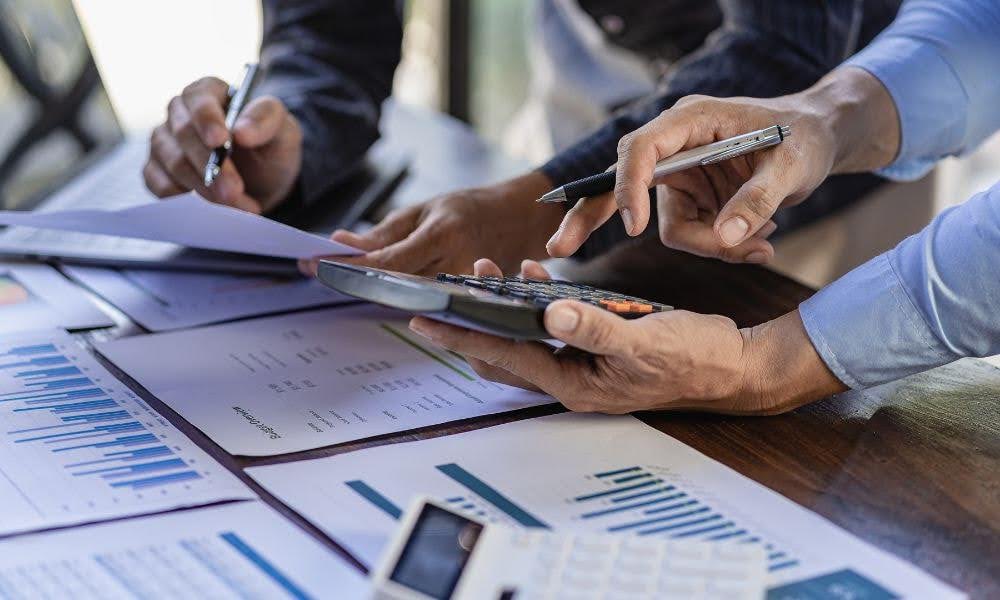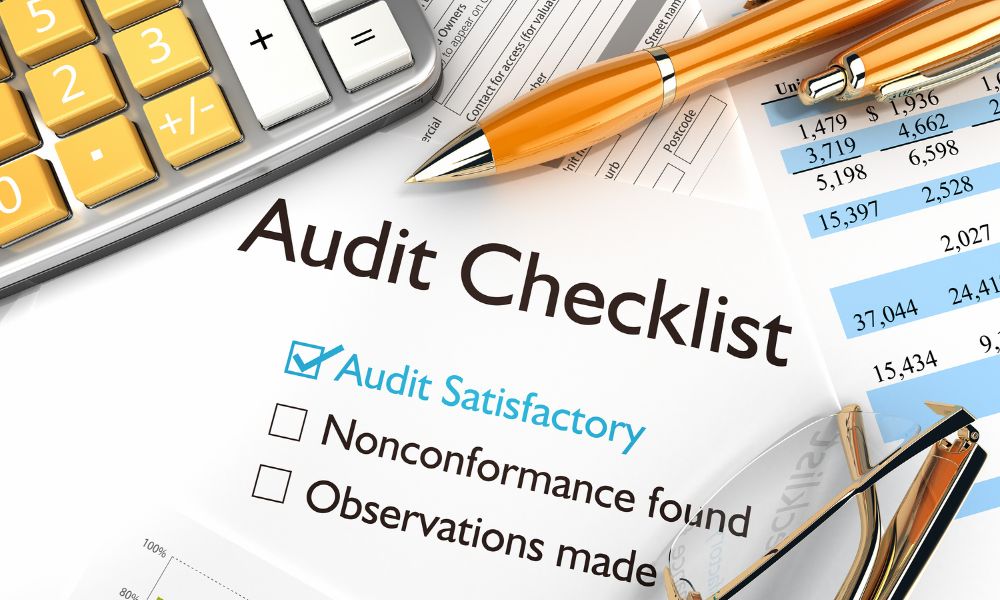In Yorba Linda’s dynamic business environment, maintaining your company’s financial stability and compliance with regulations is essential. One critical component of this process is the financial audit. Understanding the audit process can help you prepare effectively and maximize the benefits, whether you’re a small home-based business or a larger enterprise. This guide provides an overview of what to expect during a financial audit, specifically designed for companies in Yorba Linda. It explains how it helps comply with local business and tax regulations.
Yorba Linda Business Regulations and Tax Laws
Understanding local regulations and tax laws is important for businesses in Yorba Linda. Here are the key requirements:
Business License Requirement
In Yorba Linda, every business entity, including home-based businesses, contractors, and any entity conducting business within city limits, must secure a business license before commencing operations. This ensures all businesses are registered under local regulations and contributes to the lawful operation of businesses within the city.
Business licenses in Yorba Linda must be renewed annually by June 30th to avoid late fees. This renewal process is streamlined through an online system, allowing businesses to maintain their compliance efficiently and ensure they continue operating without interruption.
Home Occupation Regulations
For home-based businesses in Yorba Linda, specific regulations ensure that the residential nature of the home is maintained:
- Incidental Use: The business activity must not be the primary use of the home, ensuring the living space remains primarily residential.
- No Alterations: Businesses cannot make external alterations that change the home’s residential appearance.
- Resident Employment: Employment is limited to residents of the dwelling to maintain a low profile and minimal business impact on the neighborhood.
- Noise and Emissions: Operations must not increase noise, traffic, or emissions beyond what is typical for a residential area.
- Stock-in-Trade: Only goods produced within the home setting are permitted for sale, keeping the business scope and impact minimal.
Additional Regulatory Permits
Beyond the standard business license, certain businesses in Yorba Linda may need additional regulatory permits to operate legally. These permits could be related to environmental concerns, health and safety regulations, or specific industry requirements. Obtaining these permits is crucial to ensure full compliance and avoid legal issues, particularly when preparing for financial audits or generating an audit report.
Business Tax Structure
All businesses in Yorba Linda must adhere to the city’s business tax structure, which is a critical component of the licensing process. Compliance with this tax structure is essential for the accurate preparation and submission of organization’s financial statements and to meet generally accepted accounting principles. This adherence is not only a legal requirement but also crucial during financial statement audits, ensuring that all financial activities are properly documented and transparent.
Zoning Regulations
Zoning regulations in Yorba Linda significantly influence where and how businesses can operate, impacting everything from corporate offices to home-based enterprises. These regulations are designed to ensure that business activities are compatible with their locations, maintaining the integrity of residential and commercial areas. Compliance with zoning regulations is often reviewed during financial audits to ensure that the organization’s financial statements reflect the true scope and location of operations.
Specialized Business Regulations
Yorba Linda has specific regulations for various business types, each covered under distinct chapters of the Yorba Linda Municipal Code:
- Solicitation (Chapter 5.02): Regulates solicitation activities to ensure they are conducted in a manner respectful to residents and businesses.
- Pawnbrokers (Chapter 5.04): Requires pawnbrokers to follow stringent guidelines to operate legally, ensuring transactions are secure and lawful.
- Ambulance Services (Chapter 5.12): Ensures that ambulance services meet local health and safety standards to provide reliable emergency responses.
- Massage Businesses (Chapter 5.20): Mandates that massage establishments adhere to health, safety, and professional standards to operate within the city.
- Oil Drilling and Production (Chapter 5.32): Governs the extraction industries to minimize environmental impact and ensure safety.
- Private Patrols (Chapter 5.36): Sets standards for security businesses, ensuring they provide services that meet the required professional and operational standards.
- Cable Communications Franchises (Chapter 5.40): Oversees cable providers to ensure they comply with local agreements and provide quality service.
- Food Handling Businesses (Chapter 5.44): Requires compliance with health regulations to ensure public safety in food service.
- Short-Term Rentals (Chapter 5.50): Regulates short-term housing rentals to balance the needs of tourists and residents, maintaining neighborhood stability.
Termination of Business
When a business in Yorba Linda decides to cease operations, it is required to immediately notify the Finance Department. This step is crucial to ensure that all fiscal responsibilities are settled and that the business is formally deregistered from local records. This action prevents potential legal or financial complications related to unresolved city obligations.
Municipal Code
Title 5 of the Yorba Linda Municipal Code is the essential reference for comprehensive details on the regulatory framework governing business operations in Yorba Linda. This section meticulously outlines the stipulations for business taxes, licenses, and broader regulatory requirements, serving as a critical resource for businesses aiming to ensure full compliance with local laws.

Financial Audit Phases and Their Relation to Yorba Linda Regulations
A financial audit typically unfolds in three main phases: Planning, Fieldwork, and Completion. Each phase includes distinct activities and requirements that ensure a thorough examination of your financial records, aligning with local regulations to maintain compliance and transparency.
Planning (1-2 Days)
Initial Meeting
The initial stage of the audit involves a detailed discussion of significant changes within the business over the past year, with a particular focus on verifying the currency of the Yorba Linda Business License. This step is crucial for ensuring the legality and transparency of the audit process.
Policy Review and Internal Controls Testing
During the planning phase, auditors review company policies and test internal controls. This is particularly important for adhering to local laws such as business licenses and zoning regulations. For home-based businesses, this will include checks for compliance with specific operational restrictions outlined by local zoning laws.
Governance Review
Auditors will also examine governance meeting minutes to ensure that business operations align with the Yorba Linda Municipal Code, especially Title 5, which covers business taxes, licenses, and regulations. This review helps verify that the company’s governance structures are compliant with local statutory requirements.
Fieldwork (4-5 Days)
Materiality Calculation and Analytical Procedures
This phase involves a detailed examination of the company’s financial records to verify compliance with Yorba Linda’s business tax obligations. Accurate calculation and reporting of business-related taxes are crucial for compliance and transparency in financial statement audits.
Year-End Balance Review and Transaction Testing
Auditors review year-end balances and test specific transactions to confirm that financial activities align with the local tax structure. This step is also essential for verifying that the necessary regulatory permits are in place for business types that require them, such as food handling or massage services.
Completion (2-3 Weeks)
Drafting Financial Statements and Opinion Rendering
In the final phase, auditors draft financial statements and render an opinion. This process ensures that financial reporting complies with the business tax structure and municipal code requirements, which is vital for fulfilling business tax obligations.
Review of Draft Statements and Adjustments
The completion phase also includes a review of the draft financial statements and making necessary adjustments. This step is critical for ensuring that any updates or renewals needed for the business license are addressed, particularly to comply with the June 30th renewal deadline and avoid late charges. This meticulous review helps maintain the
Documents Needed
To ensure a smooth audit process, companies should be prepared to provide the following documents:
Financial Statements, Working Papers, and Supporting Information
The backbone of any financial audit is the comprehensive set of financial statements, working papers, and supporting documentation. These documents ensure that all business activities are fully accounted for and adhere to Yorba Linda’s business tax structure. Properly maintained records are critical for auditors to assess a business’s financial health accurately and confirm its compliance with local tax laws.
Historical Documents and IRS Documentation
Historical documents such as articles of incorporation and IRS filings are essential for compliance with business license requirements and broader tax obligations. These documents help demonstrate the business’s long-standing adherence to regulatory requirements, including those set at the federal level, which supports the legitimacy and structured operations of the business.
Documented Policies and Procedures
Documenting company policies and procedures is vital for the audit process, particularly in verifying that the business adheres to local internal control standards and zoning regulations. This is especially important for home-based businesses in Yorba Linda, which face specific operational restrictions. Well-documented policies and procedures assist auditors in evaluating whether a business operates within the legal frameworks established by local governance.

Benefits of a Financial Audit
While demanding, the financial audit process provides critical benefits that enhance both operational efficiency and financial integrity for businesses in Yorba Linda:
Error Detection
Financial audits pinpoint errors in financial records, preventing minor inaccuracies from turning into significant financial issues. This ensures that financial statements are accurate and reflective of the company’s true fiscal health.
Fraud Deterrence
Audits deter fraud by rigorously reviewing internal controls and financial transactions. This process uncovers irregularities and promotes a culture of transparency and accountability within the organization.
Cost Reduction
By evaluating financial practices thoroughly, audits identify areas where costs can be reduced and resources better allocated. These insights help businesses streamline operations and optimize spending, leading to significant financial savings.
Objective Information
Audits provide objective financial information vital for external reporting to investors and stakeholders. This data bolsters credibility and supports informed decision-making by external parties, ensuring adherence to regulatory standards and maintaining investor confidence.
Preparation Tips
Proper preparation is key to streamlining the financial audit process. Organizing all necessary financial information, including the company’s financial statements and ensuring compliance with accounting standards, is required. It’s also important to compile internal documents like handbooks and accounting SOPs.
Keeping both internal and external stakeholders informed about the audit process promotes transparency and facilitates cooperation. Additionally, proactively addressing any known discrepancies or issues can prevent delays. By taking these steps, businesses can ensure a smoother and more efficient audit.
Beyond Compliance: The Benefits of Being Audit-Ready
For companies in Yorba Linda, understanding what to expect during a financial audit and being well-prepared are essential for navigating the process effectively. Adhering to local business regulations and maintaining organized financial records are foundational to ensuring compliance and deriving the full benefits of a thorough financial audit.
Proper preparation not only streamlines the audit process but also reinforces the business’s financial health and adherence to regulatory standards. A clear understanding of the audit phases enhances the ability to address potential issues proactively, which ultimately supports business stability and growth.








